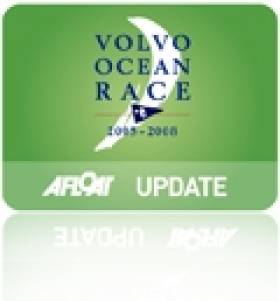Displaying items by tag: Telefónica
Groupama Try Out a New Watch System
#VOLVO OCEAN RACE - Has the Groupama sailing team adopted a new simplified watch system, keeping just one man on deck to handle the vessel - as demonstrated by Ireland's Damian Foxall in the video above?
Don't worry - it's just a prank for April Fool's Day yesterday!
The yacht and its full compliment of crew have rounded Cape Horn and are currently in overall second place as the Volvo Ocean Race fleet heads to Itajaí in Brazil on the fifth leg and longest passage of the race.
Groupama and PUMA are currently battling for first place on the leg, with Telefónica hot on their heels after making up 180 miles in just 36 hours with speeds near double those of the frontrunners.




























































